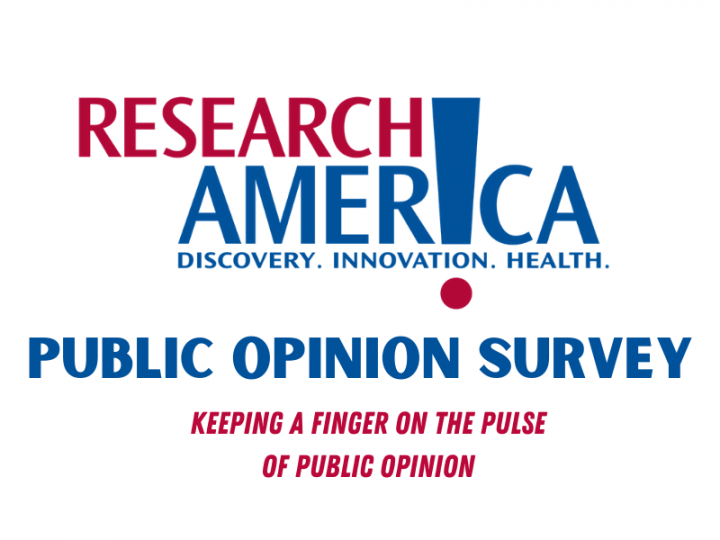Survey: Americans Agree that Prioritizing Research is Essential for Pandemic Recovery

Nearly a year into the devastating COVID-19 pandemic, Americans agree that investing in research will be key to a strong future for our nation. When asked to identify priorities for the President and Congress in the first 100 days in office, Americans chose ending the COVID-19 pandemic, assuring economic stability and growth, and growing jobs as the top considerations. In addition, nine in 10 say that research is important to economic recovery, job creation, and economic growth.
According to the survey, which was conducted in late January 2021, the public sees COVID-19 as a significant event requiring changes to how we prioritize science, technology, and health. A majority (73%) say that the COVID-19 pandemic requires that the United States assign a higher priority to science and technology. Support for basic research that advances the frontiers of knowledge is also strong: 85% agree it is necessary and should be supported by the federal government. This is an increase from 77% in August 2020.
A strong majority of Americans recognize the value of both public and private research in the development of COVD-19 vaccines, with 80% saying publicly funded research was very or somewhat essential and 81% saying private-sector research was very or somewhat essential. Seventy percent agree the pandemic has revealed that major changes are needed in our public health systems, including more funding. The value Americans place on research is

reflected in their opinions on public investment: three-quarters favor doubling federal spending on medical research, and a majority would be willing to pay more in taxes if the money went to support medical research.
There is strong bipartisan support for making faster medical progress a priority. Nine in 10 Democrats, and eight in 10 Republicans and Independents, say it is very or somewhat important for President Biden to assign a higher priority to ensuring faster medical progress.
Nearly half (46%) of Americans say they have more trust in science than they did a year ago. However, one in five Americans say they have less trust in science than a year ago, with this declining trust split along partisan lines. While just 12% of Democrats say they have less trust in science than they did a year ago, 24% of Republicans and 17% of Independents said their trust has diminished.
 “This new survey shows that, contrary to some reports, there is a significant uptick in confidence in science. The ongoing challenge for the science community is to continue to earn the public’s trust across all communities; this is a major priority for Research!America in the new year,” said Research!America President and CEO, Mary Woolley.
“This new survey shows that, contrary to some reports, there is a significant uptick in confidence in science. The ongoing challenge for the science community is to continue to earn the public’s trust across all communities; this is a major priority for Research!America in the new year,” said Research!America President and CEO, Mary Woolley.
Other survey findings included:
- A strong majority (80%) say it is important to increase the percentage of GDP spent on research.
- Most Americans (79%) agree that scientific research conducted at universities is important and should be supported by federal dollars.
- People are most willing to get a COVID-19 vaccine if it is recommended by their physician (77% say they are very or somewhat likely to get a vaccine in this case).
- Confidence in doctors, nurses, public health officials, and scientists to act in the public’s best interest is high (72-89%) across party lines.
The survey results can be viewed here.
The online survey was conducted by Zogby Analytics on behalf of Research!America in January 2021, among 1,215 adults. The survey has a theoretical sampling error of +/- 2.8 percentage points.
###
About Research!America Surveys
Research!America began commissioning surveys in 1992 in an effort to understand public support for medical, health, and scientific research. The results of Research!America’s surveys have proven invaluable to our alliance of member organizations and, in turn, to the fulfillment of our mission to make research to improve health a higher national priority. In response to growing usage and demand, Research!America has expanded its portfolio, which includes state, national, and issue-specific polling.





